Coffee Alternatives


Why Cut Back?
On the whole, caffeine seems to be safe for most people, at least up to the amount you’d get from four cups of brewed coffee a day. But that much could make you anxious, disrupt your sleep, or get your pulse racing.

Decaf
If you’re looking to cut back on coffee, this option gives you the taste with less caffeine. Some makers use chemicals or gases, like carbon dioxide, to remove the stimulant. The Swiss Water Method uses only water. Sellers must remove 97% of the caffeine from a bean to call it decaffeinated. After that, it’ll only have 3 milligrams to 12 milligrams per cup, compared with 100 milligrams in a regular cup.
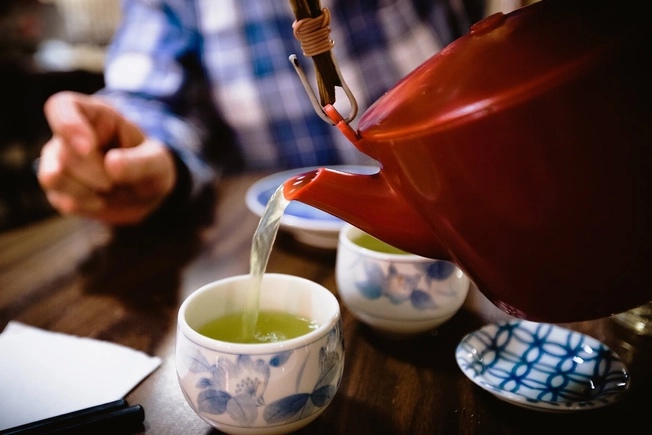
Green Tea
If you’re ready to cut back on caffeine, it’s best not to do it too suddenly. That could leave you tired, groggy, foggy-brained, and peevish. It might also give you a splitting headache. Green tea can help. In addition to cell-protecting antioxidants, it has a quarter of the caffeine in a cup of coffee.
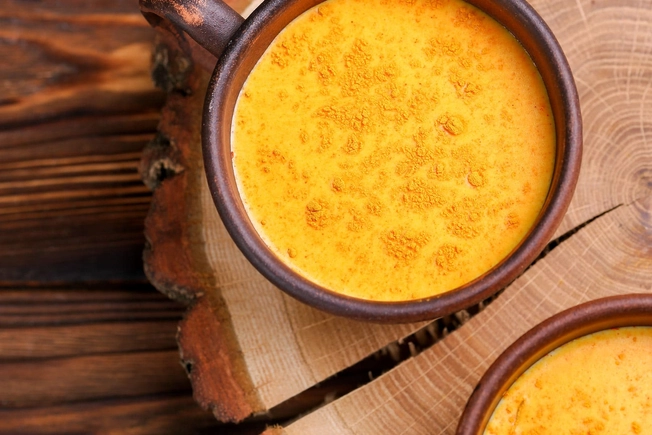
Golden Milk Turmeric Tea
This bright yellow spice could help your heart, ease arthritis pain, and relieve skin irritation from cancer treatments. Just stir it into a warmed jar of almond or coconut milk. Put a lid on it, and shake it until it’s good and frothy. Then, pour it into a cup and sprinkle it with bit of nutmeg. You can sweeten it with honey or sugar. But try it first. You may find it satisfying enough without sweetener.
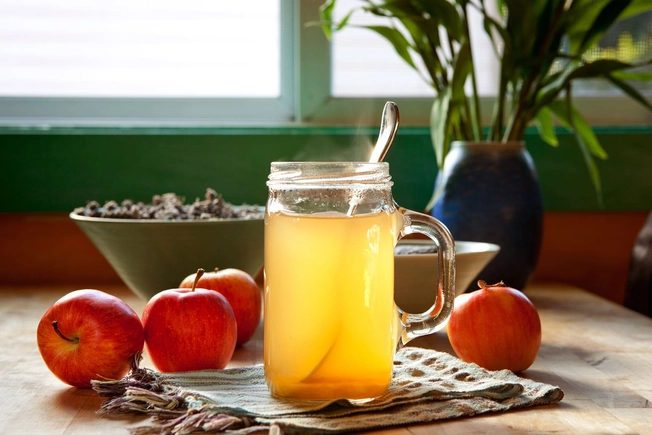
Apple Cider Vinegar
Toss a capful or so into a glass of water or warm it up into hot tea. Add lemon, honey, and even cinnamon, if you like. Don’t overdo it, because the acid can hurt your teeth. Vinegar may help keep your blood sugar more stable after you eat, though doctors aren’t sure yet. You also might feel more satisfied on days you have vinegar and be less likely to overeat.
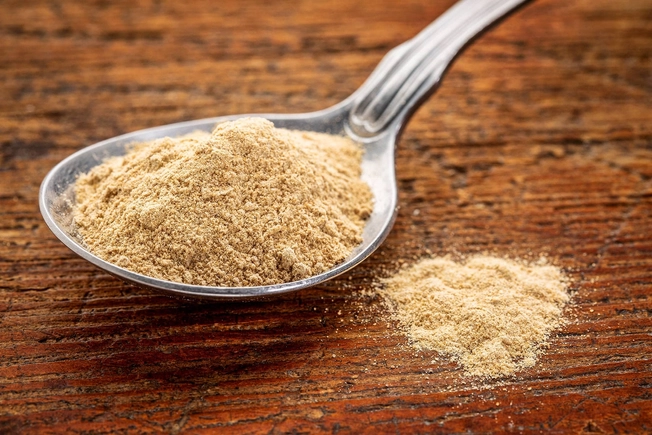
Maca
This root grows in the Andes Mountains in Peru. You can get it as a powder from health food stores and add it to smoothies or hot chocolate. More study is needed, but some evidence suggests it could make men and women more frisky and men more fertile. It might ease menopausal symptoms in women like hot flashes, night sweats, sleep problems, anxiety, depression, and irregular heartbeat.
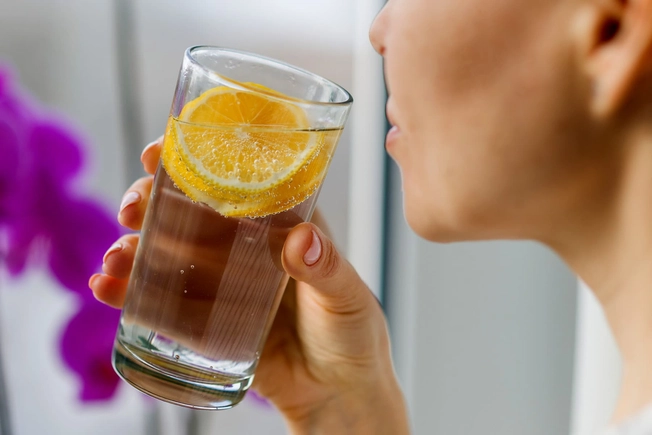
Lemon Water
In winter, you can heat it up like tea. In summer, drink it over ice. Lemons, like other citrus fruits, are loaded with vitamin C along with other cell-protecting antioxidants like flavonoids. Some studies show that daily lemon juice helps control high blood pressure.
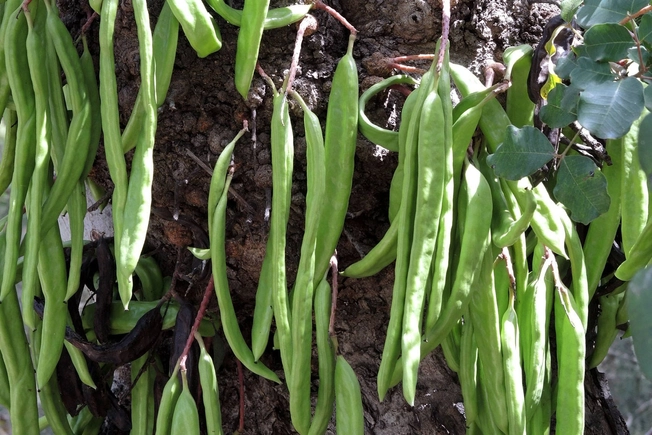
Carob
It’s made from the pod-like fruit of the carob tree. You can add it to hot chocolate or smoothies. You could also mix it with warm dairy, soy, or almond milk to make a drink that stands on its own. Carob is fiber-rich, helps digestion, and may even help keep your blood sugar and cholesterol at healthy levels.
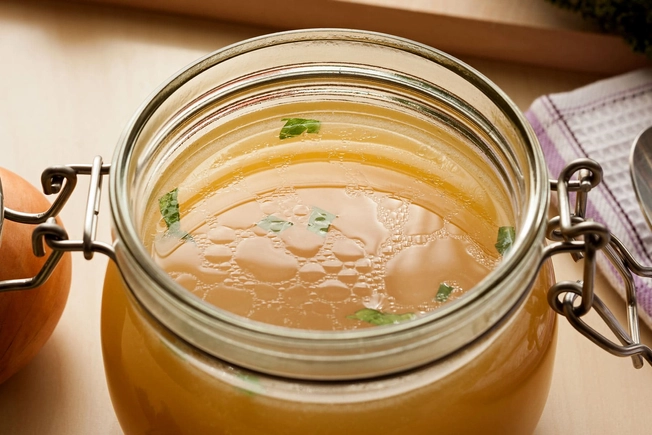
Bone Broth
It can be made from beef, lamb, or chicken. Though it isn’t quite the nutritional powerhouse that some people have claimed, it's warm and satisfying on a cold winter’s day. Plus, it’s a great source of protein, with 6 to 12 grams per cup. And there’s some evidence that chicken bone broth helps clear your nose when you’re sniffly better than other hot drinks. It also might ease swelling and inflammation.
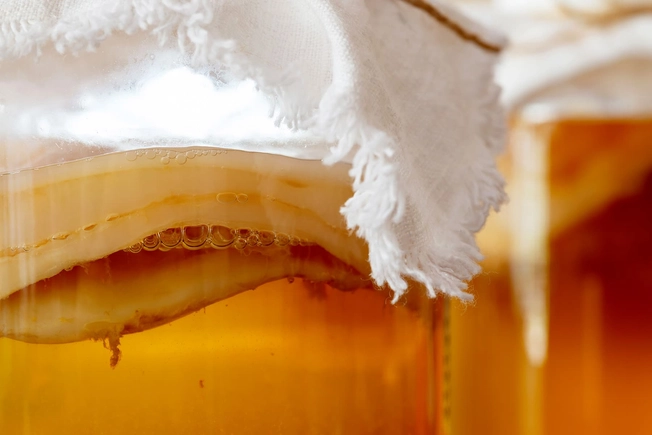
Kombucha
To make it, you add yeast and sugar to a tea mixture and let it ferment. This creates vinegar, B vitamins, and fizzy bubbles. The result is tangy, refreshing, and lower in sugar than many soft drinks. It may help keep you regular and boost your immune system, but researchers need further study to be sure. You can make it at home, but if you do it wrong, harmful bacteria could grow and make you sick.
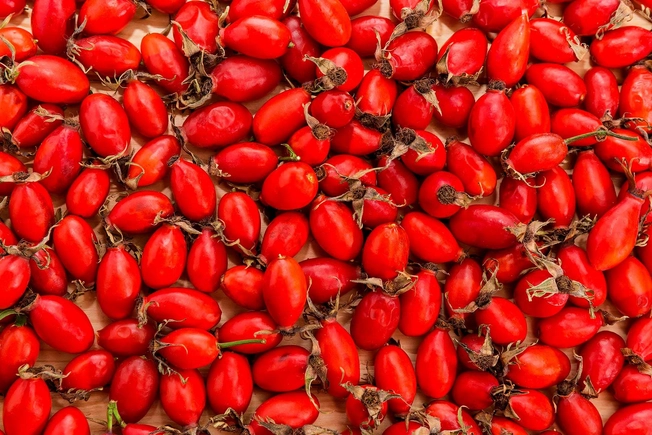
Rose Hip Tea
Made from parts of several plants in the Rosaceae family, it offers vitamin C along with a number of cell-protecting and anti-inflammatory chemicals (phenolics, carotenoids). It seems to lessen arthritis pain, and it may help you keep your weight under control, too. But more research is needed to be sure.

Milk
Good ol’ fashioned milk is a great source of B vitamins, including riboflavin, niacin, B6, and B12. Getting your daily allowance helps your body process food into fuel and keep your energy levels up. Look for low-fat or skim milk if you want to limit calories and fat.

Coconut Water
It isn’t a miracle drink, but it’s better than many energy drinks because it has no caffeine and less sugar. It can also replace essential minerals called electrolytes that you lose when you sweat. Still, for all but the most draining workouts, water is all you need to rehydrate. And some coconut water is sweetened further with sugar or juice, so check the label if you’re trying to cut calories.
